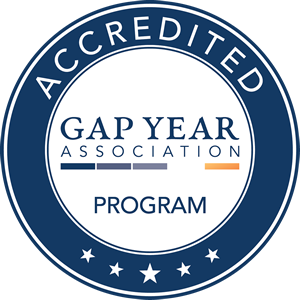Kroka Expeditions
Vitals
-
GYA Accredited Since:
2024

-
Enrolling:
Yes - Mission Statement:
Kroka strives to meet each individual student where they are and support them to grow towards their highest potential. This is done through cultivating intuitive leadership, incorporation of Waldorf education principles, place-based experiential learning, and progressive skill building that allows for students to feel genuine ownership of their experiences. Kroka programs tie in ecological and historical lessons from the land where expeditions take place, while engaging students in every aspect of the learning process. The rhythm of each day combines physically engaging work and travel through adventure sports, group decision making and problem solving, song and celebration, and time for reflection. Adventure sports include: white water paddling, rock climbing, mountain biking, backpacking, and ocean canoeing and sailing.
-
Level of Independence/Supervision (mouse-over for definition):
12345
Attachments
Program Locations
Typical Itinerary
| Sun | Mon | Tue | Wed | Thu | Fri | Sat | |
|
W e e k 1 |
Base Camp Life: Rest and self-care after a few weeks of getting into the rhythm of base camp life. Pond swimming and frisbee in the field, letter-writing, and crafting. | Community chores and breakfast, then morning academic block (southern border studies), followed by a swim in the pond. Afternoon expedition preparation and study hall, dinner, and jam session. | Community chores and breakfast, academics in the field: hydrology lab at the river! Afternoon: more expedition prep: finishing packing out all the food today, before Pizza Night at the bakery down the road. | Community chores and breakfast; academic block discussing Braiding Sweetgrass and rehearsing final presentations. Afternoon expedition prep, caching gear in the boat house and loading the trailer. | Community chores and breakfast, before a farm block harvesting greens from the field. Afternoon academics (navigation workshop) and personal gear pack-out, then celebratory community dinner. | Community chores and breakfast, followed by final expedition packing all day! | Departure for the Rio Grande Expedition, and many hours of cross-country travel. |
| Sun | Mon | Tue | Wed | Thu | Fri | Sat | |
|
W e e k 2 |
Expedition Life: Rise with the sun, as usual. Yoga circle by the river, meals cooked over the fire, and many miles on the water before arriving at camp. Read a chapter of \"Red\", by Terry Tempest Williams, then sleep under the stars. | Morning stretching and breakfast, then academic work first today, including finishing observational ecology watercolor work. Whitewater on the river and a delicious dinner over the fire. | Rising and morning movement circle, cheesy grits for breakfast, and a beautiful paddle through the canyon walls, learning about the geology of desert stratigraphy and river hydrology. | Rise with the sun and spend the day on calmer water. Humanities class continues with \"Red\", read aloud in the canoes as you float the current. After dinner, a few group members take a short hike up the nearby mesa for desert views under th | Stretch circle and pancakes for a liveover (day of rest), filled with bathing, sunbathing, and many hours of continued academic work. Prepare for group independent travel, then share dinner on the riverbank with some wild horses. | Yoga with the sun and a long day paddling on the Rio Grande, approaching the majestic Mariscal Canyon. Camp together and review plans before the instructors step away for a few days and the group manages itself! | Morning stretching and pancakes. Say \"see you soon\" to your instructors, and head off down the river for a three-night independent group travel. |
*A general overview of the Fall Legends of the Southwest semester. We are currently enrolling both our Fall and Winter (Full Circle) semesters! We will be opening enrollment for our 2025 Ecuador Fall Semester this summer!
Program Outcomes
- Grow as individuals and community members
- Farm organically, sustainably and environmentally-consciously
- Develop leadership and independence
- Learn through experiential, place-based education
- Obtain wilderness-living skills for self-sufficiency
- Travel and live outdoors, in union with nature
- Create strong, supportive relationships with a tight-knit group
- Acquire college or high school credit in an intimate setting
- Prepare for a career or life journey through self-discovery
- Develop altruism and give freely of ourselves
Kroka provides unique wilderness programs centered around the cultivation of consciousness and altruistic will. The container of extended expeditions traveling through wild places is one that pushes us as human beings to experience vulnerability and reliance on community (both human and non-human). In return, we are rewarded with humility, compassion, elation, a sense of reverence for the natural world, and a deep feeling of belonging.
Program Details
- Program Starts: Fall, Winter
- Program Duration: Semester, Yearlong
- Typical Program Cost: $6,000 - $35,000
- Program Financial Aid: Yes
- Other Financial Aid Details:
Kroka offers two pathways to tuition: full cost tuition and donor supported sliding-scale tuition, based on your family's household income. We strive to make our extraordinary semester program accessible to all accepted students.
Staff Training and Certification
Kroka is accredited through the AEE (Association of Experiential Education).
All staff are Wilderness First Responder certified.
